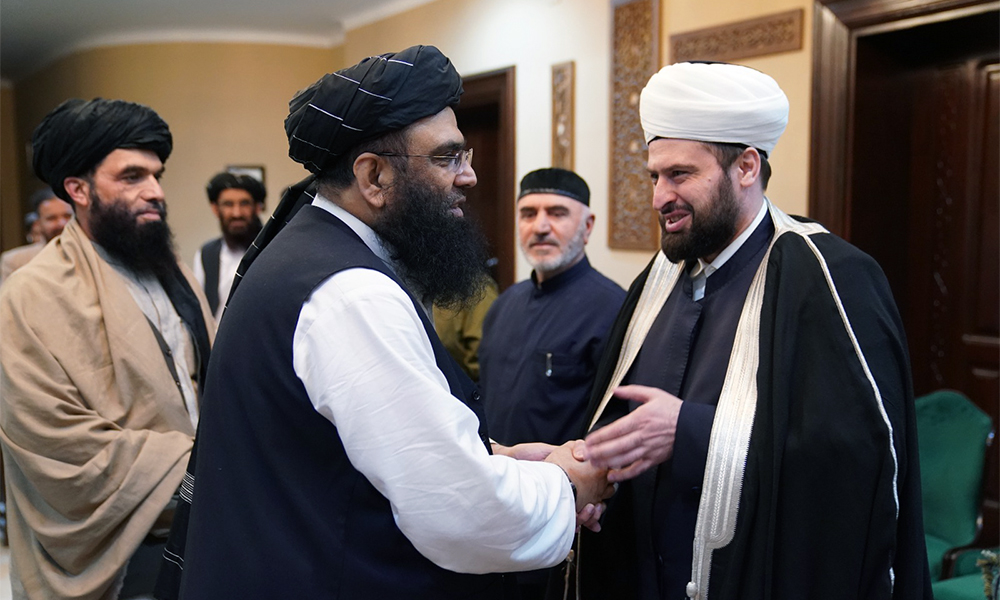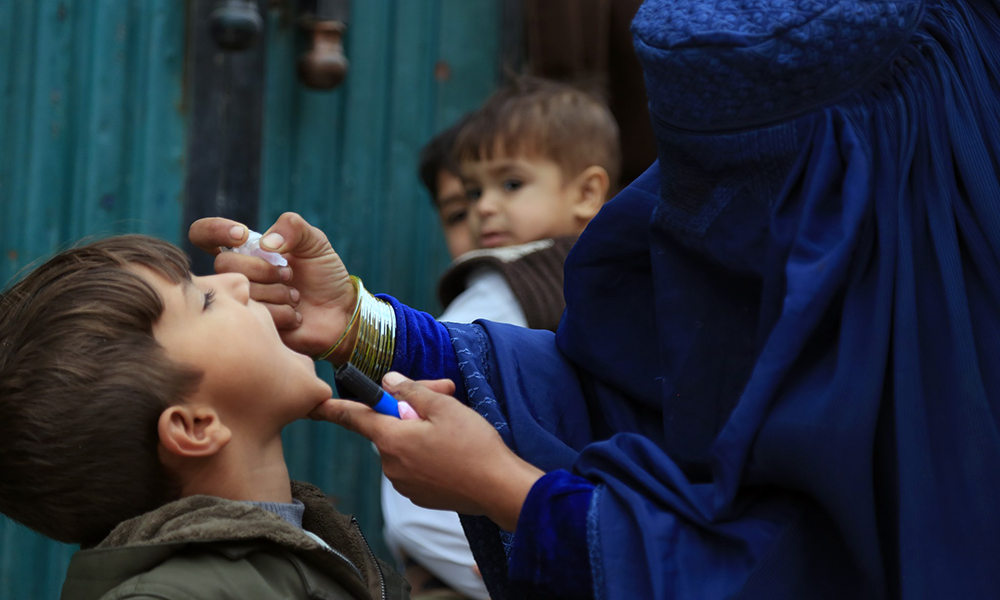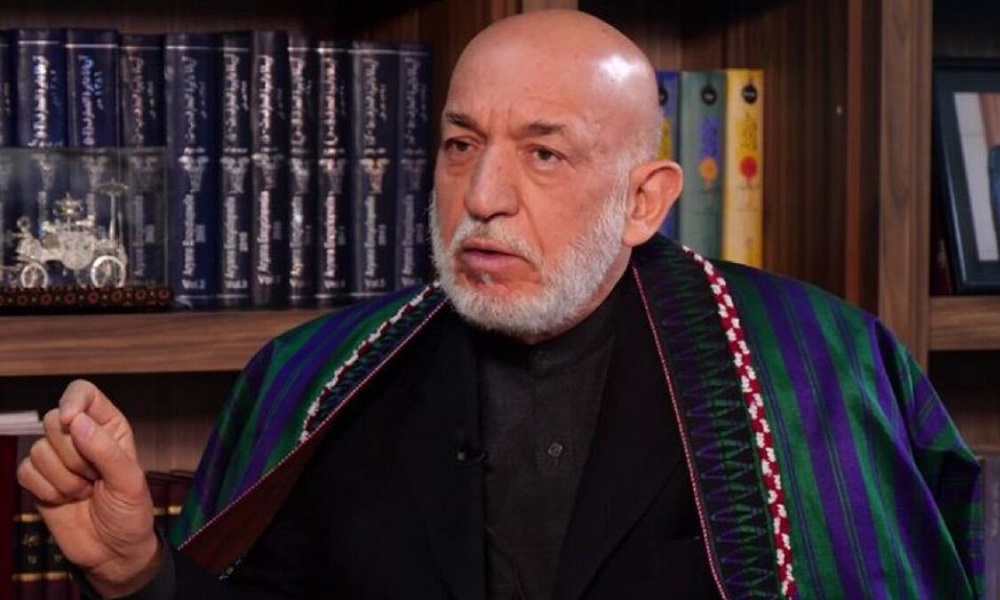Latest News
Political deputy PM meets visiting Muslim scholars from Russia

The political deputy prime minister of the Islamic Emirate of Afghanistan, Mawlavi Abdul Kabir, met with a delegation of religious scholars from Russia’s Muslim community.
The meeting started with the recitation of the Holy Quran by the head of the Russian delegation, the Imam of Sabor Mosque in Moscow, Mawlavi Sheikh Zalikhayov Ahmed Magmedovich, the IEA said.
Magmedovich said the purpose of their visit to Afghanistan is to develop relations between Russia and Afghanistan. He also noted that there are 20 million Muslims living in Russia and the visit will further strengthen the relationship between Muslims.
Other senior scholars included the Deputy Director of Russia’s International Islamic Culture, Gadjiov Mohammad Haji Amrovich, the General Imam of the Islamic Institute of Russia and the Deputy Director of International Islamic Culture of Russia Mohammad Bashir Magmidovich.
They expressed that after the 40-year war, they are happy with the security and developments in the country and that the continuation of the current peaceful situation and governance of the Islamic Emirate will eventually lead to the world recognizing the IEA as the ruling government.
The delegation also provided information about the spread of Islam in Russia and said that Muslims do not have any problems in Russia.
Mawlavi Abdul Kabir welcomed the Russian delegation and said, we expect that your arrival will lead to the development of trade relations between Afghanistan and Russia and that you will take back a good image of Afghanistan to Russia and the world.
Kabir asked Russia to officially recognize the Islamic Emirate along with its allies and reiterated assurances that the territory of Afghanistan will not be used against anyone.
Kabir also requested that such visits between Islamic scholars of Russia and Afghanistan continue.
Latest News
A new polio vaccination campaign is set to launch in Afghanistan
Afghanistan and Pakistan are the only two countries in the world where polio has not been eradicated.

The “Afghanistan Polio-Free” organization announced that a new round of polio vaccinations will begin on Monday, December 23, in various provinces of Afghanistan.
The organization did not specify which provinces will be targeted or how long the vaccination campaign will last.
Afghanistan and Pakistan are the only two countries in the world where polio has not been eradicated.
On December 4, 2023, the World Health Organization (WHO) issued a statement reporting a 283% increase in polio cases in Afghanistan. According to the WHO, the number of positive environmental samples for wild poliovirus type 1 in Afghanistan in 2024 reached 84, compared to 62 cases in 2023.
The Ministry of Public Health claimed in November 2024 that no new cases of polio had been reported in Afghanistan for the year.
Latest News
G7 envoys urge national dialogue for lasting stability in Afghanistan

Special Representatives of the Group of Seven (G7), including the European Union, have emphasized the importance of a national dialogue for achieving long-term stability in Afghanistan.
Following a meeting on Afghanistan in Geneva, Switzerland, G7 special envoys issued a joint statement calling for the restoration of women's rights and urging the Islamic Emirate to fight terrorism.
The statement reads: "Achieving sustainable peace and stability requires credible governance that represents all segments of Afghan society."
The representatives also expressed concern over the IEA’s decision to ban girls from attending medical institutes, warning that it will have devastating consequences for the citizens, particularly mothers and their infants.
The statement described this ban as unacceptable and called on the Afghan authorities to lift it immediately.
Earlier, countries and international organizations had called for the removal of restrictions on the education and employment of women and girls, emphasizing the need for a national dialogue.
In response to these concerns, IEA has repeatedly stated that it will not allow interference in the internal affairs of the country.
The G7 special envoys also expressed their concern about the recent terrorist attacks in Kabul and the surrounding region, warning that terrorism remains a serious threat to Afghanistan's security. They confirmed the actions of the IEA against Daesh but stressed the need for more decisive measures.
Latest News
Afghanistan’s bright future lies in educating girls: Karzai

Hamid Karzai, the former president of Afghanistan, says the demand of Afghan girls for the reopening of schools and universities is their fundamental right and adds that Afghanistan cannot have a bright future without ensuring access to education for girls.
In a statement on his X (formerly Twitter) account, Karzai said: "The demand and voice of our country’s girls for education and knowledge is a rightful one and crucial for a prosperous Afghanistan."
He further emphasized, "Empowering the youth—both girls and boys—is the only way to achieve self-reliance, break the cycle of poverty, and drive the development and prosperity of society."
Karzai underscored that education is vital for Afghanistan’s growth and development, expressing hope that the doors of schools and universities for girls will be reopened as soon as possible.
-

 Sport5 days ago
Sport5 days agoLanka T10: All three matches abandoned due to rain
-

 Latest News5 days ago
Latest News5 days agoIndia hoping to import coal and marble from Afghanistan
-

 Sport4 days ago
Sport4 days agoZimbabwe’s opening ODI against Afghanistan abandoned
-

 Latest News5 days ago
Latest News5 days agoJapan announces $27.5 million aid package to Afghanistan
-

 Latest News1 day ago
Latest News1 day agoAfghan men must stand with women to support viable future of country: US envoy
-

 World3 days ago
World3 days agoNorth Korean troops suffer 100 deaths, struggling in drone warfare, South Korea says
-

 Latest News3 days ago
Latest News3 days agoTwo horror accidents on Kabul-Kandahar highway leave 52 dead
-

 International Sports4 days ago
International Sports4 days agoLanka T10: Kandy Bolts in at 4th spot in playoffs after thrilling day
























